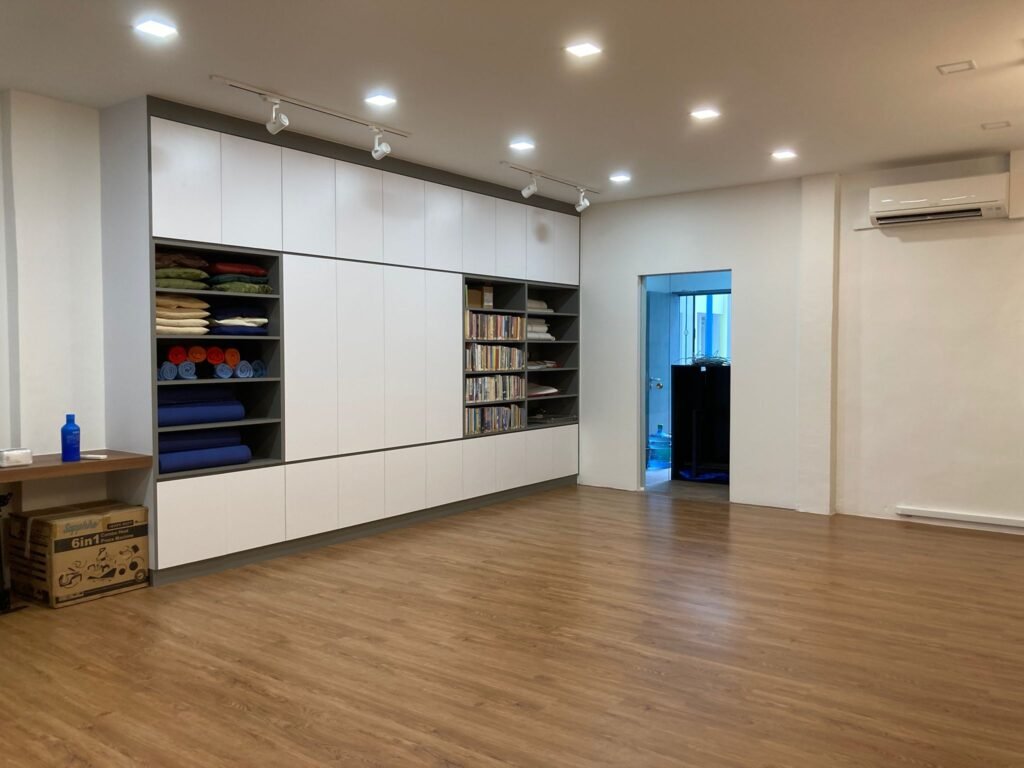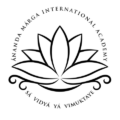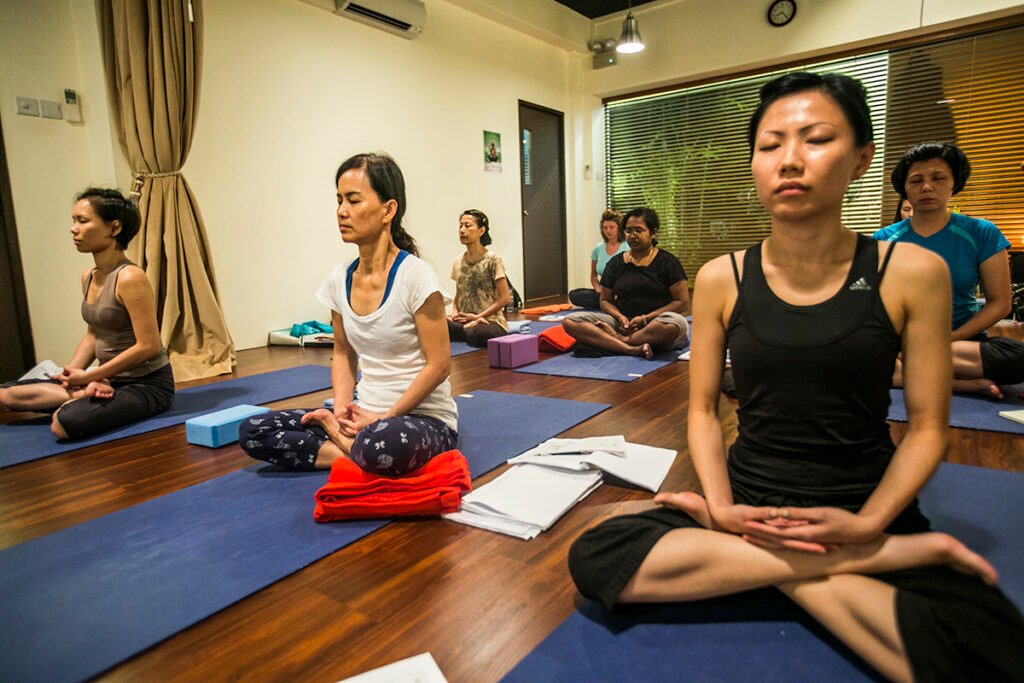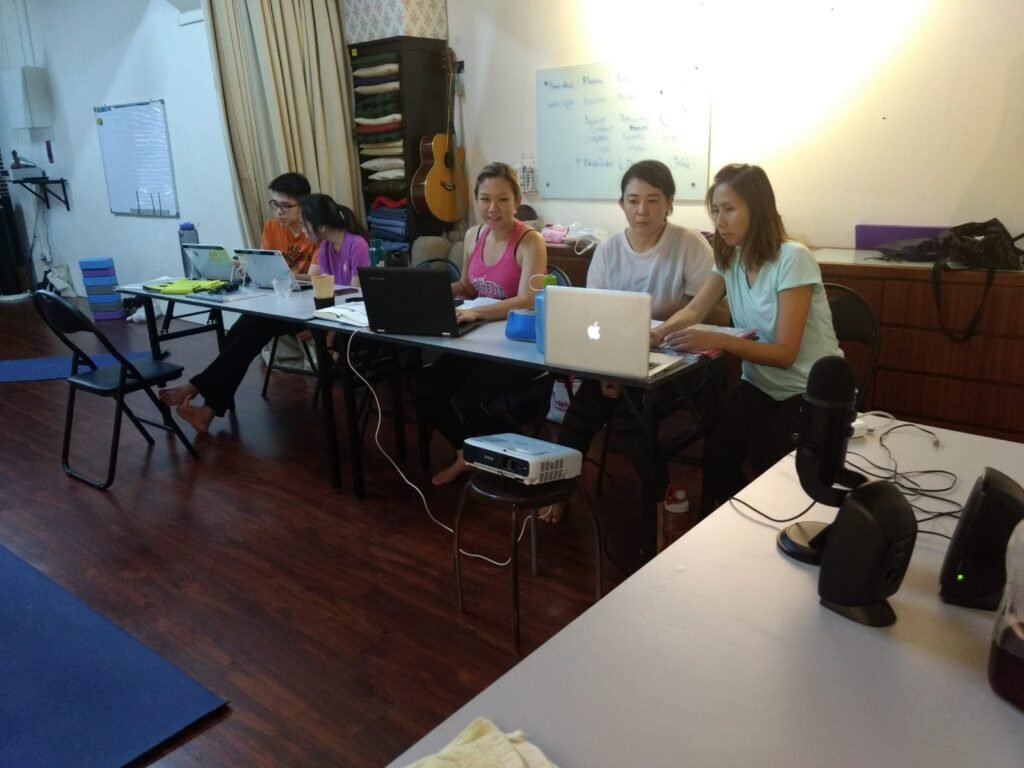Courses
Education for Future Generations
AMIA Offers the Following Courses:
Yoga Teacher Training
The Certificate Course offers everything expected from a basic Yoga Teacher Training course.
It enlightened education in Yoga History, Science, Anatomy, Physiology and lifestyle and Philosophy. Students and graduates will then be able to implement the ideals of Yoga into their personal life and in Society.
Yoga Teacher Training
The Diploma Course covers everything expected from an Advanced Yoga Teacher Training Course, and much more.
It enlightened education in Social, Yogic Treatment, Yoga Psychology and Artistic appreciation and expression. At the end of the course, students are required to choose their own topic for their thesis and write their own realization over the entire Diploma Course.
First Time in The World
Pramá Analysis
This Course, has two major scopes academic and job-oriented.
The first scope is academic which aims to guide students in deepening their understanding of this subject in order to apply and teach it to others and to gain personal and collective benefits, such as improved health, family harmony, peace of mind, and physical, mental and emotional balance in individual, family and social context.
The Certificate & Diploma in Yoga Science, Practice, and Lifestyle, covers everything expected from a yoga teacher training course, and much more.
All aspects of a student’s personality are developed. Utilizing an integrated curriculum, the courses empower students to be physically fit, mentally evolved, and spiritually elevated. Students learn to utilize this capacity for serving the society.
What you want to know before signing up
Ánanda Márga International Academy is registered with MOE under SkillFuture Singapore (SSG).
Registration No. 201020812K (Period 30-04-2023 to 29-04.2025)
- a) Faculty of Yoga and Intuitional Science is located at 57 Geylang Bahru, #01-3497, Singapore 330057 and has 1 classroom with a floor area of 45 square meters. The maximum capacity of the classroom is 12 students. The average Teacher-Student ratio of 1 to 12 students. for Certificate and Diploma in Yoga Science, Practice, and Lifestyle Yoga Teacher Training.
- For Pramá Analysis Course the average Teacher-Student ratio of 1 to 12 students.
Every student has free access to the following facilities:
- a) Library
- b) Dressing Room
- c) Props: Yoga Mats, blankets, straps, cushions, bolsters, and blocks


AMIA presently provides the following Courses Approved by SSG:
1) Certificate in Yoga Science, Practice, and Lifestyle – 216-hour part-time course.
2) Diploma in Yoga Science, Practice, and Lifestyle – 216-hour Part-Time course.
3) Certificate in Pramá Analysis – The Universal Law of Balance and Equilibrium – 528 Hours
Industrial attachment: Not required.
Certificate in Yoga Science, Practice, and Lifestyle Aims to provide enlightened education in the following Modules:
YTTC1. Yoga History
YTTC2. Yoga Science
YTTC3. Yoga Anatomy and Physiology
YTTC4. Yogic Lifestyle
YTTC5. Teaching Methodology and Professional Ethics
YTTC6. Yoga Philosophy

Diploma in Yoga Science, Practice, and Lifestyle Aims to provide enlightened education in the following Modules:
YTTD7. Yoga Society
YTTD8. Yogic Treatments
YTTD9. Yoga and Creativity
YTTD10. Classical Yogic Text
YTTD11. Yoga Psychology
YTTD12. Individual Thesis

Certificate in Pramá Analysis
The Universal Law of Balance and Equilibrium
Module 1 – Pramá Analysis History – Discourses by P.R. Sarkar
Module 2 – Pramá Analysis
Module 3 – Same Yet Different
Module 4 – Pramá in Different Settings
Module 5 – Bio-Psychology 1
Module 6 – Break Down Challenges: Find Successful Solutions
Module 7 – Pramá Analysis
Module 8 – Neo Humanism 1
Module 9 – Bio-Psychology 2
Module 10 – PROUT – All Round Social Progress
Module 11 – Microvita And Society
Minimum Entry Requirements
To enrol in the Certificate and Diploma
in Yoga Science, Practices
& Lifestyle Yoga Teacher Training
* 3GCE “O” Level Passed or equivalent.
* Language Proficiency: Able to Communicate in English
* Minimum Age 16 (with parents or Guardian written permission see registration form)
* You may take individual modules of the Certificate Course but you must complete and pass all the modules to receive the final Certification.
* You may take individual modules of the Diploma Course but you must complete and pass all the modules 1-6 of the Certificate Course and all the modules 7-12 of the Diploma Course to receive the final Diploma Certification.
* Module 12 is Individual Thesis

Minimum Entry Requirements
To enrol in the Certificate in Pramá Analysis
The Universal Law of Balance and Equilibrium
* Age: 18 years old
* Language: GCE O Levels – C6 English or equivalent
* Academic:
1) Minimum 3 GCE “O” Level passes or equivalent
2) Students are required to pass an entry test on general knowledge of Prama concept as explained by P.R. Sarkar.
* Upon completing each module you will receive a certificate attesting the completion of that particular module, all modules at stackable certificates.
* Upon completing modules 1 to 6, the student will receive an additional certificate certifying the student as Pramá Basic Analysts.
* Upon successful completion of module 7 to 11 the student will be certified as Pramá Advanced Analyst.
* Upon successful completion of the all modules from 1 to 11 the student will be certified by the Ánanda Márga International Academy as Certified Pramá Analyst.
Board of Directors
| Management Board Sng Chu Kiat: Director Tay Lay Chin: Director Giuseppe Petracca: Managing Director | Academic Board Dr. Dhanjoo N Ghista (PHD.) Sng Chu Kiat (BA, Hons) Giuseppe Petracca: Managing Director | Exam Board Dr. Dhanjoo N Ghista (PHD.) Maniisa Tay Lay Chin (BSc. Homeopathy) Sng Chu Kiat (BA, Hons) Giuseppe Petracca: Managing Director |
|---|
The Style of Yoga we teach
The style of yoga we teach is known as Raja Dhi Raja (RDR) Yoga. RDR is an expansion of the ancient Raja yoga system, also known as Ashtaunga yoga. Compare to Hatha Yoga, RDR yoga differs in the way the asanas (yoga postures) are done. RDR yoga is practiced at a relatively slower pace and each asana is repeated several times in a structured way. This balances hormone secretion and stimulates the function of the internal organs, the circulatory system, the lymphatic system, and the nervous system. Meditation has also a central role in these yoga teacher training courses. The trainers in AMIA are internationally recognized teachers and are highly skilled and experienced in the field of yoga education. Most of the AMIA Trainers are senior teachers with decades of experience. The Gurukula system of education is the oldest on our planet, tracing its roots back 10,000 years to the time of ancient civilization and dedicated to the highest ideals of all-round human development with a futuristic and ecological perspective and a universal outlook.
More about AMIA Yoga teacher training courses in Singapore.

Yogic Pedagogy
| AMIA presently provides the following Courses Approved by SSG: 1) Certificate in Yoga Science, Practice, and Lifestyle, it is 216 Hours and a Part-Time course. 2) Diploma in Yoga Science, Practice, and Lifestyle it is 216 Hours and a Part Time course. Both courses may be taught: a) Physically or b) On line or c) Hybrid. Industrial attachment: Not required |
|
|---|---|
| Certificate in Yoga Science, Practice, and Lifestyle Aims to provide enlightened education in the following Modules: YTTC1. Yoga History YTTC2. Yoga Science YTTC3. Yoga Anatomy and Physiology YTTC4. Yogic Lifestyle YTTC5. Teaching Methodology and Professional Ethics YTTC6. Yoga Philosophy | Diploma in Yoga Science, Practice, and Lifestyle Aims to provide enlightened education in the following Modules: YTTD7. Yoga Society YTTD8. Yogic Treatments YTTD9. Yoga and Creativity YTTD10. Classical Yogic Text YTTD11. Yoga Psychology YTTD12. Individual Thesis |
| To enrol and graduate you must have these Minimum Academic Level requirements: 3GCE “O” Level Passed or equivalent. Language Proficiency: Able to Communicate in English Minimum Age 16 (with parents or Guardian written permission see registration form) *You may take individual modules but in order to be issued the Certification you must complete and pass all the modules of the Certificate Course. | To enrol and graduate you must have these Minimum Academic Level requirements: 3GCE “O” Level Passed or equivalent. Language Proficiency: Able to Communicate in English Minimum Age 16 (with parents or Guardian written permission see registration form) * You may take individual modules but in order to be issued the Diploma Certificate you must complete and pass all the modules of the Certificate Course and Diploma Course including the Thesis. |
| Assessments and Examinations are designed for you to study, practice, and deepen your interest in the yogic subjects and lifestyle. | |
| 1) Certificate in Yoga Science, Practice, and Lifestyle 1. Yoga History Written Exam - (Account for 40% of the Total score) Home Assignment - (Account for 60% of the Total score) 2. Yoga Science Written Exam - (Account for 40% of the Total score) Home Assignment - (Account for 60% of the Total score) 3. Yoga Anatomy and Physiology Group Project Oral Exam 4. Yogic Lifestyle Group Project - Aśt́áuṋga Yoga - Pataiṋjali Group Project - Yogic lifestyle - 16 Points for a Successful Life 5. Teaching Methodology and Professional Ethics Pass Grade by 80% Attendance 6. Yoga Philosophy Written Exam - (Account for 40% of the Total score) Home Assignment - (Account for 60% of the Total score) 7. Yogic Practices Exam for Certificate Course (Ásanas, Kaosikii, Táńd́ava, Self-Massage, Warmup, Infiniti Yoga, Mudras, and Bandhas) Oral Exam (Account for 60% of the Total score) Written Exam (Account for 40% of the Total score) | 2) Diploma in Yoga Science, Practice, and Lifestyle 7. Yoga Society Group Project - Neo Humanism Group Project - PROUT Progressive Utilization Theory 8. Yogic Treatments Written Exam - (Account for 40% of the Total score) Home Assignment - (Account for 60% of the Total score) 9. Yoga and Creativity Assessment - Art in Dance Assessment - Poetry and Song Group Project - Drama Group Project - Mandala 10. Classical Yogic Text Written Exam - (Account for 40% of the Total score) Home Assignment - (Account for 60% of the Total score) 11. Yoga Psychology Written Exam - (Account for 40% of the Total score) Home Assignment - (Account for 60% of the Total score) 12. Individual Thesis The Thesis as an Individual Project is considered a non-contact Full module 36 Hours 13. Yogic Practices Exam for Diploma Course (Ásanas, Kaosikii, Táńd́ava, Self-Massage, Warmup, Infiniti Yoga, Mudras, and Bandhas) Oral Exam (Account for 60% of the Total score) Written Exam (Account for 40% of the Total score) |
| GRADING SYSTEM Distinction (90 – 100%) A grade (80 – 89%) B grade (70 – 79%) C grade (60 – 69%) D grade (50 – 59%) Fail (Below 50%) P Pass grade EX (exempted) ABS (Absent) | |
| For information on course schedule, fee, registration form, info pack and contract. click here For AMIA structure and Board Members. click here |
|
The course combines classroom teaching, practical training of Yoga practices, personal instruction and guidance, and workshops in various yogic aspects. Throughout the course, each class is divided into two main sections which integrate both the practical & theoretical yogic aspects.
The first Section is dedicated to the practical aspects of Yoga such as warm ups, ásanas, mudras, bandhas, kaośikii and meditation, etc. there will be many sessions of hands-on training whereby each student will take turns to plan and teach a Yoga class. There will be an evaluation of the hands-on at the end of the session.
The second section is dedicated to theoretical classes according to the curriculum subjects. In between there will be a short break.
- Ásanas
- Mudras
- Bandhas
- Kaosikii
- Meditation



